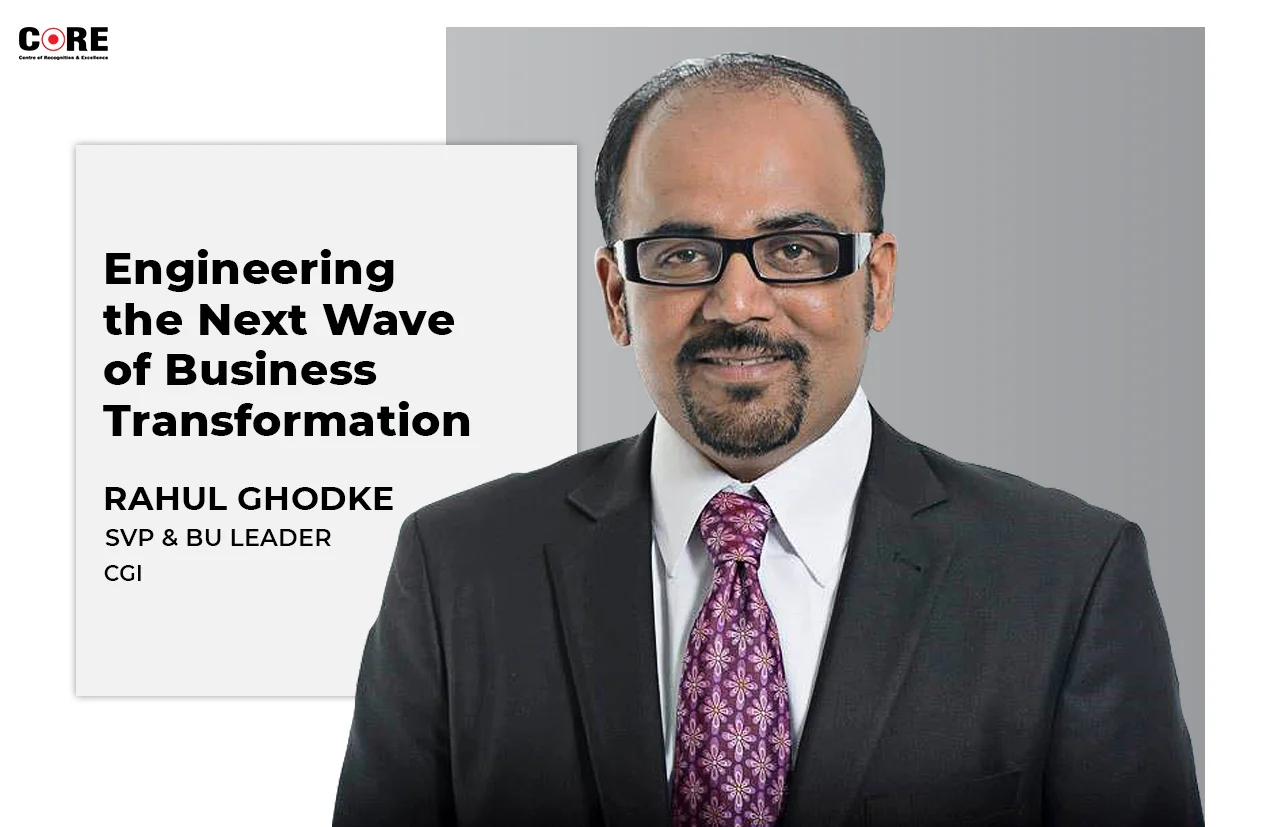For Rahul Ghodke, innovation is a ruling passion. During the last seven years at CGI, his core focus has been to translate some of these technological innovations into real business value for the company’s global customer base that’s spread across industries.
As a technology leader with rich experience in the services sector, Ghodke believes that the industry is all set to embrace the next wave of disruption – led by the new digital imperatives and changing customer demands.
CIO Dialogues caught up with Rahul Ghodke, Senior Vice President & BU Leader, Asia Pacific Global Technology Operations, at CGI- one of the largest IT and business consulting services firms in the world, to talk about what lies in store for the industry and the trends he sees emerging.
You have been at the forefront of leading key initiatives at CGI. Tell us about the top innovation and transformation projects that you have recently focused?
At CGI, we focus on high-value consulting work more than the classic side of the business and that is where innovation comes into the picture. Being in the B2B space, we are directly responsible for the business outcomes of the customer organizations that we work with. Therefore, our innovation focus is multi-faceted and spans across our platforms, products and services offerings, especially around hybrid cloud offerings, analytics, serverless & edge computing and so on. Example, on the cloud services side, our Cloud Service Provider (CSP)-agnostic blueprinting approach has been a great value-creator for our customers in their key cloud strategies.
That’s an interesting approach in a space which is highly vigorous. Do you think a platform approach to cloud is something that enterprises are now moving towards?
The pace at which technology is changing is different than what it was in the past few years. That is all the more true when it comes to cloud services. With the pace at which these new services are launched by the CSPs, it is very difficult to find niche talent to support it and to get them to work on various use cases to drive innovation. The skill challenge has only been widening in the industry. So, what we have seen is that businesses now want a simple and self-service experience when it comes their cloud services. The platform approach is a very big part of the innovation that we are focused on, where we normalize the complexities behind the individual CSP and provide a CSP agnostic layer to our consumers. It is important for both customers and service providers to have unified skills across various CSPs.
How do you see the digital wave disrupting the industries that you work with globally? What are some of the key trends that you see emerging?
In almost all industries, companies are leveraging cloud, analytics and AI/ML to completely transform the experience bit. For example, in the banking industry, everything is today available from any peripheral device of choice at any location, using any technology. It's completely agnostic of location, device type of use, device type usage, operating system usage, and that's a completely different and refined customer experience.
Another industry which has transformed globally is retail. The classic storefront kind of model has been more or less challenged because of Covid and retailers are focusing on providing the same storefront experience to customers in digital channels.
Hospitality, retail, and telecom are some of the domains that have seen maximum disruption versus the classic delivery model. The other domain that is now seeing a shift is in manufacturing, a majority of which is now getting managed by edge computing or sensors. The factories, are now IP enabled and coupled up with edge management devices, can intelligently manage their operations versus having those manual checks and manual procedures. It's all now workflow-based, the SCADA systems and the erstwhile factory operations models are now refined to be complimented and augmented with the power of automation and AI, which is another big innovation that we are seeing.
What are the key challenges you foresee for technology leaders in the sector?
The biggest challenge that all service providers today are facing is to support the pace of innovation. And, one thing that is very profound and prominent is that innovation will drive the next wave of transformation for all businesses and technology will be a key enabler.
Whether it is a product-based business or a service-based business, it's pretty clear that these transformations or the next evolution of these businesses and products will be more or less on the back of technology.
In this context, the first big challenge is about talent. The other big problem is around the ability to position the transformation and then look at change management in a more structured manner. Businesses are expecting a vertically aligned product-based model vs a factory based operating model from their service providers.
How do we provide the right kind of leverage and consistency in terms of service delivery, the level of fungibility between resources, and the skill liberation that’s required in a product-based model versus a factory-based model, are all areas for deliberation. All this will be something that a IT managed service provider will have to quickly re-baseline and also get used to because the next-generation operating protocols will be a bit different.


